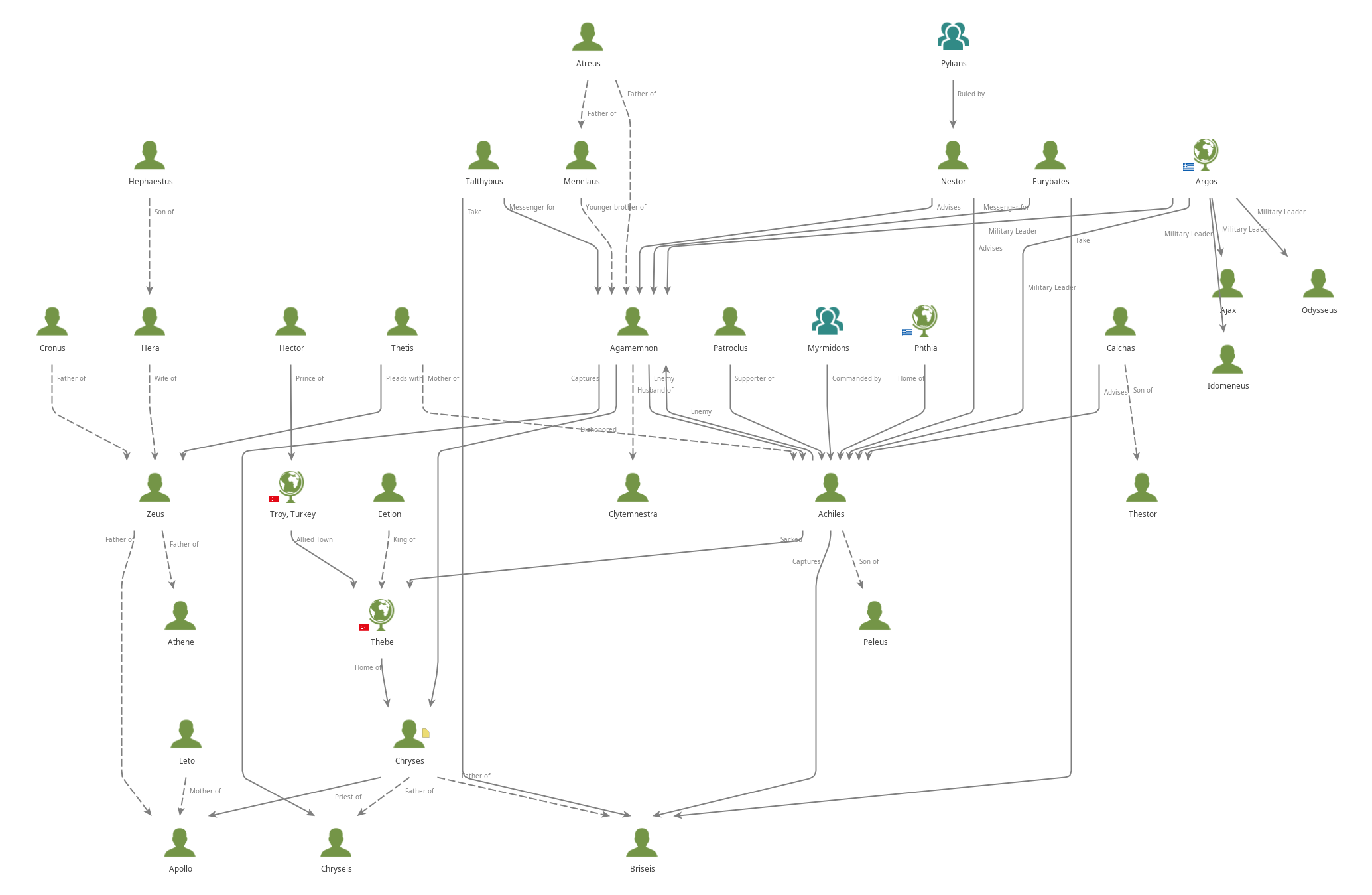Summary
After King Agamemnon and Achilles sacked the city of Thebe, King Agamemnon took Chryseis and Achilles took Briseis. Both women were daughters of Chryses, a priest of Apollo. Chryses, the priest of Apollo, prayed to Apollo for the return of his daughter Chryseis, who responded by firing arrows at the Greeks for approximately nine days. On the tenth day, Achilles and King Agamemnon met with their advisor, Nestor, who revealed that Apollo was angry with King Agamemnon for taking Chryseis. King Agamemnon then suggested he would return Chryseis and, in turn, take Briseis from Achilles. Achilles became upset and began to take out his sword to kill Agamemnon but was ultimately stopped by Athene, who advised him not to. Achilles listened and holstered his sword. King Agamemnon sent Talthybius and Eurybates to take Briseis from Achilles, and Achilles allowed them to take her. Achilles then became upset and summoned his mother, Thetis, and asked her to convince Zeus to grant victory to the Trojans, which Zeus agreed to. Hera, Zeus’s wife, became upset, but was comforted by her son Hephaestus.

Points of Interest
- The poem is about the “rage” of Achilles
- The gods meddle in human affairs
- Apollo sent pestilence upon the Greeks for dishonoring his priest
- Apollo sent arrows and kills the Greeks for nine days
- Athene stops Achilles from killing Agamemnon
- Thetis convinces Zeus to bring victory to the Trojans at the request of Achilles
- Personal honor is important
- Achilles is dishonored at the idea of Agamemnon taking his war prize
- Chryses is dishonored when Agamemnon takes Chryseis as his war prize
- Hera is dishonored when Zeus doesn’t include her in his plans with Thetis
- Each individual interest supersedes that of the whole which makes everyone else suffer and in many cases die
- Agamemnon does what Paris did to start the Trojan war in the first place